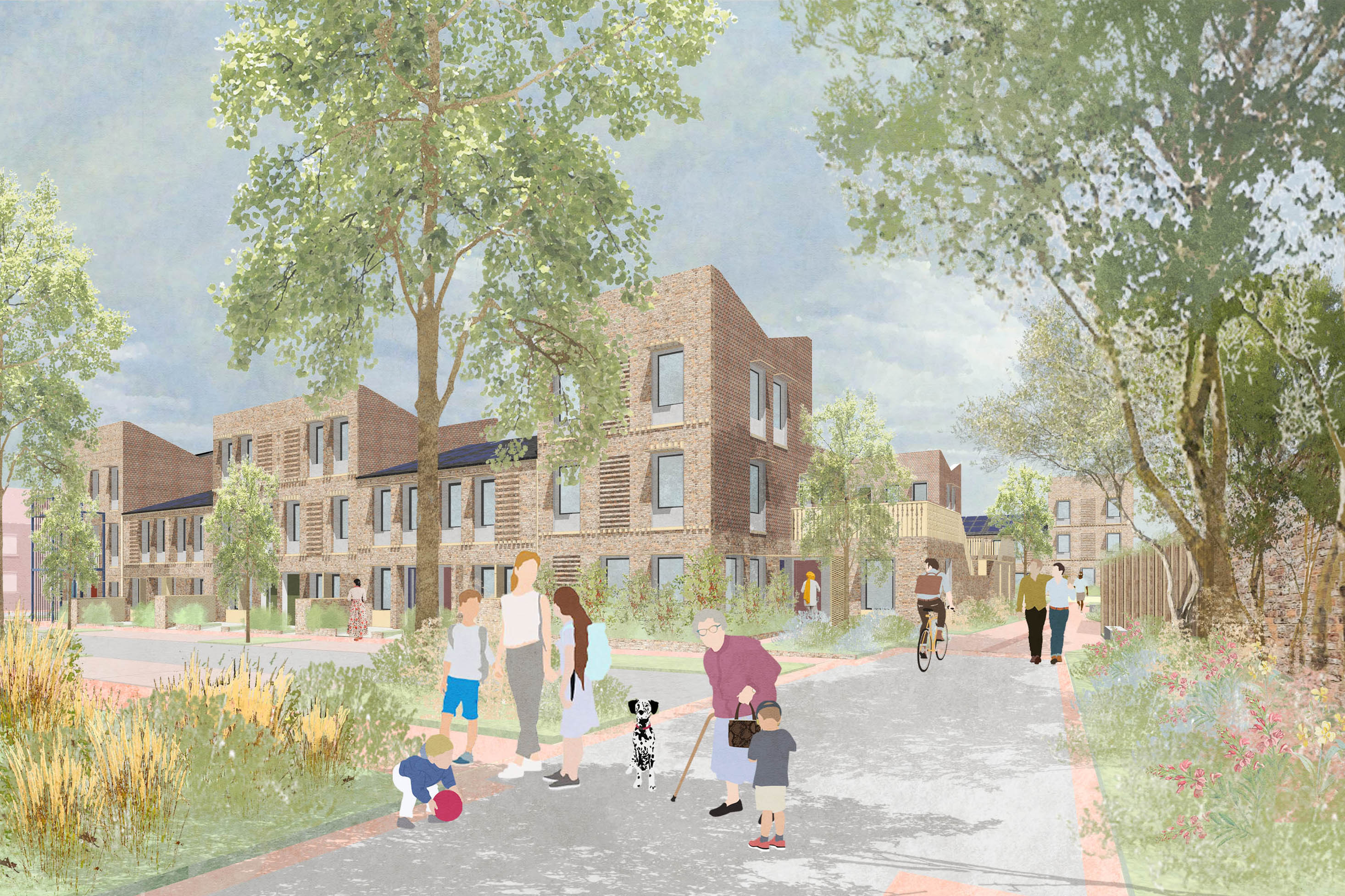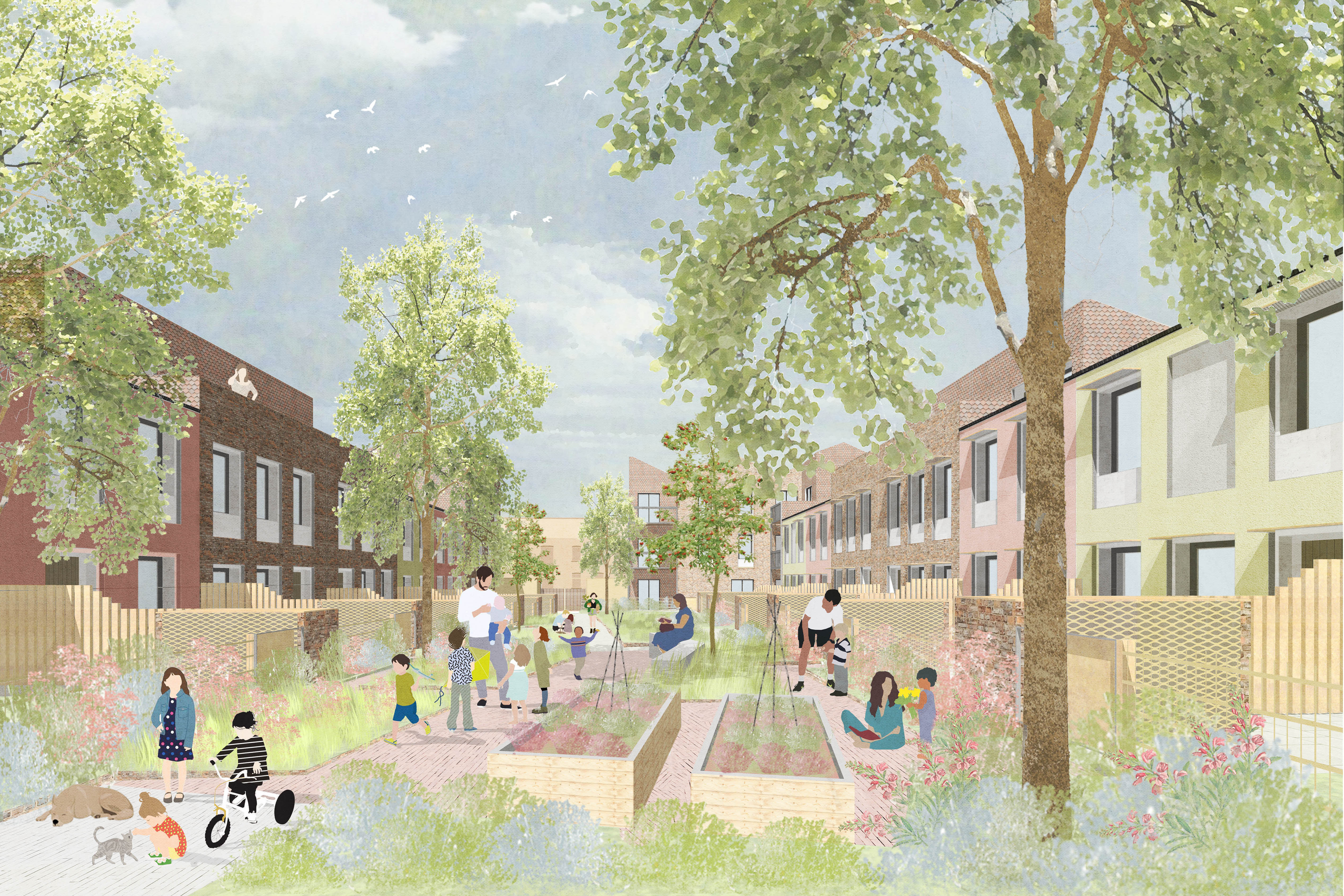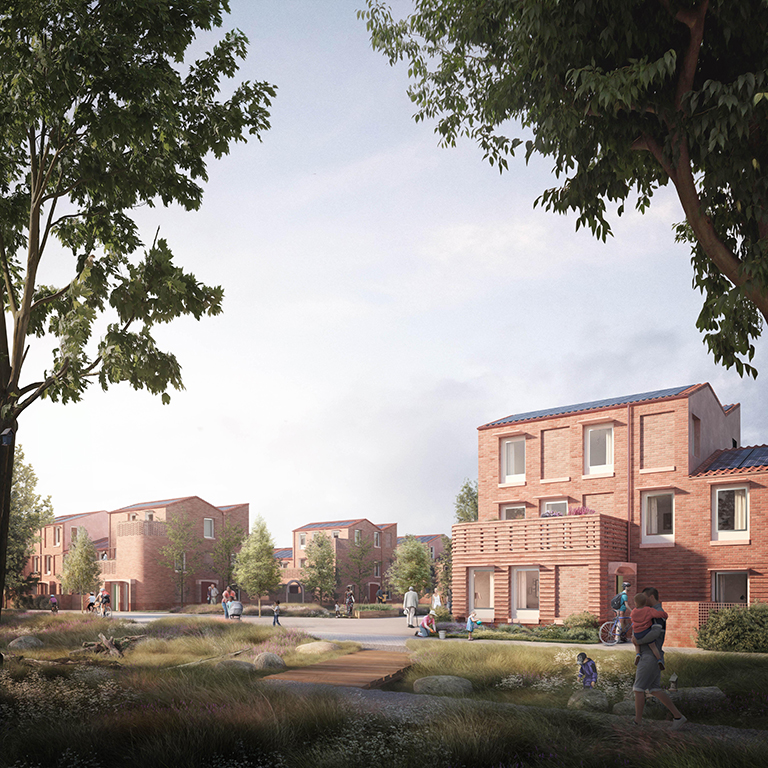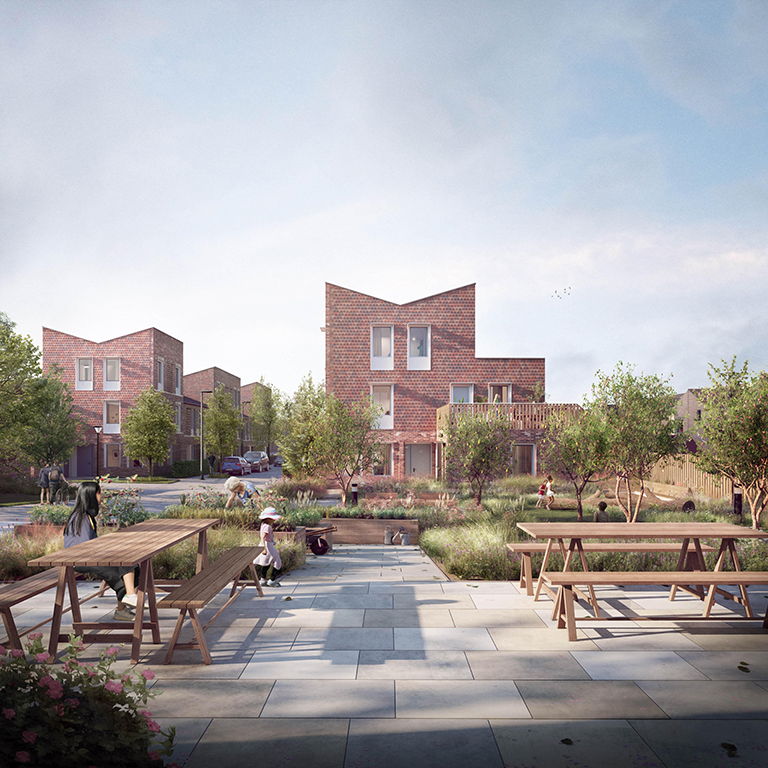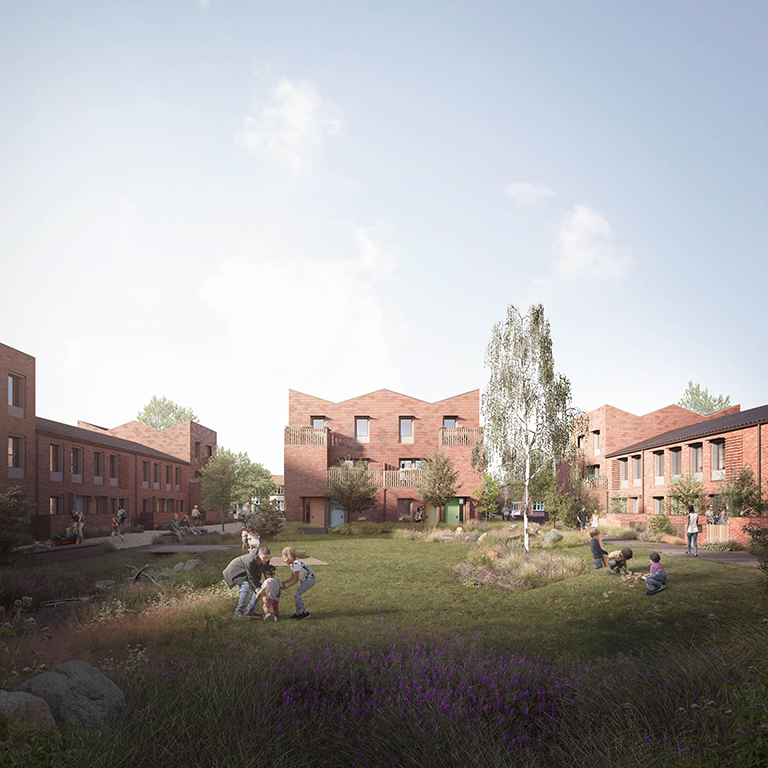
Aerial view of York Minster © Alexey Fedorenko
City of York Council's new housing delivery programme is seeking to address a range of 21st-century challenges, including significant demand for homes, social isolation, climate change, and physical and mental health needs.
The programme aims to inspire other local authorities and developers by building beautiful, healthy and inclusive places.
Lowering carbon reduces running costs
When thinking about housing affordability, we need to extend the conversation to running costs. The programme's first homes are already fitted with solar photovoltaic (PV) cells and independently rated A for energy performance.
The next phase of projects will be built to certified Passivhaus standards, being highly insulated and airtight. But the programme goes further than this standard by including air-source heat pumps and PV panels as well, to ensure developments are zero carbon in operation.
Renewable sources will generate enough energy to heat, light and power the homes, including mechanical heat recovery systems that supply fresh, filtered air. This approach not only minimises negative environmental impact, but will drastically reduce residents' bills – a critical benefit given the significant recent rises in UK energy costs.
'The programme aims to inspire other local authorities and developers by building beautiful, healthy and inclusive places'
The homes will be built using lower-carbon materials, utilising timber frame construction with recycled newspaper insulation. Water butts will collect rainwater for use in gardens, while permeable surfaces, rain gardens and sustainable urban drainage systems (SUDS) will reduce surface run-off in public spaces.
More trees will be planted on every site than houses built, including fruit-bearing varieties, to encourage communal gardening and food production. Natural open spaces will significantly boost the ecological value of each site, while supporting children's outdoor play and learning.
Sites will have limited car parking spaces – some as few as one per five homes – but generous space to store cycles, including cargo bikes, and charging facilities for electric bikes and cars. Each site is designed to create new physical connections between streets, encouraging more walking and cycling. The use of resting points will promote outside walks, social interaction and enjoyment of the landscape.
The programme is supported by RICS-accredited project managers driving onsite quality and a rigorous financial approach. An RICS-accredited clerk of works will play a key role in championing quality across the sites and support from RICS-accredited valuers is used to provide confidence in sales projections to support business case development.
120 years of pioneering homes
York has been a housing pioneer for more than a century. New Earswick garden village was developed at the turn of the 20th century, and the city later took part in the national Homes Fit for Heroes programme to provide light and spacious housing for First World War veterans.
In a much-loved city where average house prices are about ten times the average wage, up to 60% of the programme's homes will be available either for social rent or shared ownership – around three times what local planning guidelines currently require. With a buoyant housing market, any surplus reasonably expected from market sales will be reinvested in yet more affordable homes.
In Summer 2022, construction is beginning at Duncombe Barracks and Burnholme on the first homes in the city that will generate no carbon in use. These Passivhaus-certified homes will include council housing and homes for shared ownership. All will be built to UK space standards, with greater accessibility to enable people to continue living happily in their homes should their circumstances change.
Properties will be available for key workers wanting support to buy their first home. An innovative house type has also been developed to accommodate two generations of the same family under one roof, with their own fully equipped private spaces that allow them to live independently.
UN recognition enables international outlook
The programme has received recognition from a Friends of the Earth case study, making the shortlist of the Local Government Chronicle Awards, as well as planning and housing design awards.
In addition, during COP26, the UN invited York to become an International Centre of Excellence on High-Performing Buildings, making it the first local authority in England to be awarded this status. As a result, York will join an international collaborative network sharing best practice and implementing new ideas.
The council’s executive member for housing and safer neighbourhoods Denise Craghill said: 'A strong and ambitious design manual supports this progressive and collaborative programme. The framework of clear and bold design principles allows us to lift the standards of residential placemaking in York significantly. Our innovation aims to raise expectations and inspire others to do better.
'Led by good design principles, as interpreted by residents and our Stirling Prize-winning architects Mikhail Riches, we want to create pride in place, participation, healthy activity, self-supporting communities, and safe and secure homes that improve educational attainment, mental well-being, low-carbon lifestyles and independence.'
Michael Jones is head of housing delivery and asset management at City of York Council
Contact Michael: Email
Related competencies include: Sustainability
RICS Guide: Reducing Carbon in Your Home
The UK has now committed to a target of net-zero carbon emissions by 2050 to help prevent potentially irreversible and severe climate change impacts. RICS has published a consumer guide that offers guidance to homeowners considering retrofitting to make their home low carbon, and signposts other key sources of advice and financial assistance for making these changes. It is also useful for those looking to make their property greener before putting it on the market, or for those renting property looking to benefit from energy efficiency.

